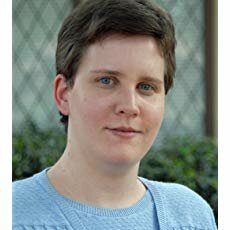John David Martin is the author of science fiction novel Charis Colony: The Landing. It is his first science fiction novel, though he wrote other books such as The Space Boys and The Winter of 78. And I had the opportunity to interview him.
Tamara Wilhite: Can you tell me about your new novel, Charis Colony: The Landing?
John David Martin: The novel takes up a number of themes that have been occupying my mind in the last couple of years. One is this: Suppose the answer to the Fermi Paradox is that there are no technological civilizations within 1,000 light years of Earth? Suppose the smartest life-form inhabiting the nearest Earth-like planet is about as smart as one of the great cats? Or a racoon. Well, that planet is Charis, and in the novel it’s been colonized by humans for a little over 277 local years.
The next theme is the trouble resurgence of eugenics as a medical, ethical practice.
The third major theme is how countries like China – and now the Netherlands and Canada- are institutionalizing a downright predatory corruption of medicine: Mandatory organ donation. The sort of thing Larry Niven was already warning about over fifty years ago in A Gift from Earth and the Gil the Arm stories.
Finally, it’s all wrapped up in a struggle between a soft totalitarianism that gives citizens material comfort and security and a classically liberal free society where life is less certain and more risk-fraught. And it’s a love story between Raj and Shirin, the protagonists, and it also deals with the future of religion.
Tamara Wilhite: I know you periodically write scientific articles. Have you written any other science fiction?
John David Martin: Not yet.
Tamara Wilhite. I saw your article on “The Demise of the Drake Equation”. Can you explain the implications of that to the audience?
John David Martin: Yes. First here’s the equation for those who don’t have it fresh in their heads:
N = R* × fp × ne × fl × fi × fc × L
N= the number of extra-terrestrial civilizations with which we could communicate
R* = the average rate of star formation
fp= the fraction of stars with planets
ne= the fraction of planets capable of supporting life
fl = the fraction of planets that actually develop life
fi= the fraction of planets that develop intelligent life capable of developing civilization
fc= the fraction of civilizations that develop the ability to communicate across interstellar distances (i.e., send and receive radio or laser signals that we could detect)
L= the length of time over which such civilizations transmit signals that we could detect
Assumptions about the values of these terms, in particular ne and the terms following it have guided all more or less serious thinking about the possibility of extra-terrestrial life and civilisations ever since Drake committed the equation to paper.
Only, those assumptions about the terms have not kept up with astronomical discoveries. We now know that there are thousands of planets orbiting other stars, but…those planets tend to be either hot Jupiters or massive rocks with 5 times Earth’s mass, most of which have tight, fast orbits around their parent stars, meaning a) they are almost certainly tidally locked- very bad for habitability- and b) the solar winds from the parent stars have blasted the atmospheres of the rocky planets out into space and baked their surfaces in hard radiation for millions of years.
If you look at the text below the headlines in all those articles pronouncing “Earth’s twin discovered”, what you find is that in every case where we’re not looking at a hot gas giant, we’re looking at a sterile, likely tidally-locked chunk of rock with essentially zero chance of supporting life. Why, only 30 of the 3,700 (give or take) exoplanets yet discovered are even in the water habitable zone. That’s a miniscule number in galaxy with 100 to 400 billion stars.
Now, while it’s true that these observations could just be artefacts of our observational capabilities right now. It’s also possible that they are representative. If they are, this has grave implications for SETI (it’s a waste of time and money) and for SF writers who want to be even remotely realistic about what’s waiting for us out there.
Tamara Wilhite: Your sci-fi novel Charis Colony is quite a departure from your Christian fiction and your work translating other books to and from German. How would you describe what you do for a living?
John David Martin: Most of the time, I translate texts from international clients. I’ve done lots of legal contracts, but also texts like personal letters, bills, scholarship applications, even Christmas cards, all from German, Dutch or Swedish into English. And I’ve done some interpreting as well. In essence, I am enabling people who otherwise could not communicate at a professional level to communicate at that level.
Tamara Wilhite: I believe you’d translated a few comics and short stories like those in Detective Comics. Can you talk about the differences between American and European science fiction? Are there differences in the themes their writing about, the tropes authors use or the most popular monsters in their stories?
John David Martin: Well, first I have to correct the impression you have. I have not translated any comics or short stories yet. I did translate passages of medieval German and Old Norse sagas for academic work, but literary translation …not something I’ve done on a significant scale yet. There are three Christian inspirational books out there, inspirational biographies, that I have translated, but no comics.
As for the differences between American and European SF, there does not to me seem to be much in the choice of subject matter. Maybe AI-themes and time travel/alternate reality stories have a slight edge over space opera here, but I am not sure. Eco-apocalypses did dominate the SF bestseller list last year, but that could just be a politically informed expression of the global wave of apocalyptic fiction that we’ve seen in the past ..what…seven years or so? There does seem to be more fear of the future in Euro-SF than in American, for sure.
Tamara Wilhite: You’ve written under a pseudonym about the death of space opera. You mention that most of the successful semi-recent space operas like “Guardians of the Galaxy” are based on content created in the 1970s. Why do you think there really isn’t any truly new, successful space operas?
John David Martin: First, I have to clarify that I was talking in that article- back in 2014- about scripted visual entertainment, i.e. movies and TV. That being the case, I am going to stand by the assertion in 2020. The biggest hit on Disney+ right now is what? Another iteration of a 44 year-old space opera franchise, namelyThe Mandalorean. It’s good entertainment. I like it in spite of all the nonsensical elements that show up like the plot point , we have to travel at sublight“ in Episode 10. Then there are the multiple new Star Trek shows, which again, all derive from a series that is 54 years old.
But other space operas on streaming services? Only The Expanse has had what an honest observer could call significant success. It’s certainly got all the key elements: adventure, political intrigue, romance and spaceships. What it is trying to do and mostly succeeding at is to be the hardest hard-SF show to ever be produced. In that respect it succeeds quite well. But it seems to be the only game in town, the only successful, new series, film or TV that fits the space opera description.
Dark Matter was cancelled after three seasons and has not, to my knowledge, developed any kind of fan following. Babylon Five has a fan following, but J.M. Straczinsky has repeatedly confirmed that the franchise is dead. There will be no Babylon Five: The Reboot.
Why is this the case? Economics is likely part of it. Studios want to back proven winners. It takes dedicated fans – like the ones who saved The Expansefrom cancellation – to change their minds. Dedicated fans are paying customers. And it could be that these established properties just suck up all the audience for space opera and now people have gotten bored with it. The western died out, too…for a while.
Tamara Wilhite: What are you currently working on?
John David Martin: A sequel to Charis Colony: The Landing called Charis Colony: The Southern Shore. That’s the title for now, anyway. Also, an Arthurian tale based loosely on the medieval romance Iwein, the Knight with the Lion. And getting paid work. I am not quitting my day job.
Tamara Wilhite: Is there anything you’d like to add?
John David Martin: No. I am pleased and thankful that you took the time to do this interview.
Tamara Wilhite: Thank you for speaking with me.



Comments
Leave a Reply